
Powerful. Flexible. Intuitive. Innovative. Transformative.
Meditation can be awesome.
It can also be incredibly frustrating, especially when you first get started.
From time commitments to issues with getting comfortable, many of the struggles experienced are more related to the establishment of a new habit rather than an issue with meditation itself.
It’s like trying to exercise more or eliminate fast food from your diet.
Changing your habits can be difficult, sometimes even painful, and those negative experiences make us want to give up.
If you can stick with it, meditation has a lot of good stuff that it can offer.
There are even proven health benefits which can develop over time with regular practice.
The struggle is in the first 21 days when the decision is made to start meditating – if you can get past that struggle, then you won’t believe how beneficial meditation can be.
To get through that struggle, it is often helpful to look at the light at the end of the tunnel.
Or as Fyodor Dostoevsky once said: “The darker the night, the brighter the stars.”
That light gives us hope. It shows us that we are still moving forward, even if it seems like our efforts feel like they are going backwards.
These are the reasons to start meditating regularly.
These are the reasons to keep going so you can establish this habit in your life over the next 21 days.
#1. You want to reduce stress and anxiety in your life

Out of the many proven health benefits of meditation, what is often attractive to many is the ability to better cope with stress and anxiety.
We are leading very busy lives these days. We’re connected to one another in many amazing ways.
It also means we have less “me” time and that can cause stress or anxiety to fester.
A Buddhist publication from 1973 puts this very succinctly. “But when asked, “What have you gained from meditation?” the answer would be: “It is not what I have gained that is important but rather what I have diminished, namely, greed, hatred, and delusion.”
There are a lot of things we could worry about in our world today.
Yet when meditation is present, there is more stability to the personal emotional state.
Stress and tension can be relieved because the worries are able to be put into a larger perspective.
Or as Dr. James Austin puts it in his book called Zen and the Brain: Toward an Understanding of Meditation and Consciousness, the brain can actually be sculpted to accept the emotional well-being that is important to you.
If you want to reduce stress, then meditation will help you do it.
If you want to reduce anxiety, then meditation will help you worry less.
That’s how meditation can change your life in 21 days or less.
#2. You want life to slow down a little bit

Have you ever noticed that time seems to slow down when you’re on vacation?
Or that when you visit an island, the pace of life seems slower than what your life happens to be?
Meditation can help you begin to slow down.
The mind never really shuts down.
Even when we sleep, we are dreaming and this helps us be able to solve problems, restore our bodies, and even create new ideas.
When we are awake, the mind gets cluttered up with the “to-do” list that needs to be completed for the day.
There’s nothing wrong with being busy, but too often we allow the busy nature of modern life to let us forget to notice what is going on around us.
This is why vacations seem to move slow in the moment, but also feel like they pass by too quickly.
It’s why some communities can build a slower pace of life, but still be engaged in modern life.
Time is being taken to appreciate the perfection which is available in every moment of every day.
By paying more attention to these details, a form of meditation called “mindfulness” is being practiced.
When you want life to slow down a little, taking the time to appreciate the perfect details that surround us, no matter how small, can make life feel more meaningful.
You’re able to think more clearly.
Instead of focusing on stress, you’re focusing on your relationships.
Your experiences. The moments that you treasure.
Meditation can help you shift that focus so that life can be just as slow as you want it to be.
#3. You want to find out more about yourself

There’s a principle that is about as old as time itself: love other people as much as you love yourself.
The only problem is that many people don’t love themselves today because they don’t know who they are.
It is not possible to offer genuine love to another person when there is no acceptance of the internal self.
In order to love, you must be able to accept who you are.
This can be quite the struggle sometimes because many people have personal stigmas, taboos, and habits that they don’t respect about themselves.
Some feel like they aren’t pretty enough.
Others think they aren’t smart enough.
Some people feel like they don’t fit in because they get bullied all the time.
The reasons why we don’t appreciate who we are as people are many and the fixes are few.
Thankfully one of those fixes is meditation.
We are often driven by how we socialize with one another, but this is only one part of our personal definition.
You have ethics. You have morals. You have lines that you will not cross. This is who you are.
Within the boundaries of these things is your safe zone. Some might call it a “happy place.”
In order to have a safe zone, you must be willing to establish one in the first place.
Meditation takes the pressure away of being who others want you to be so that you can focus on who you are at a core level.
When you can embrace this person, then you can embrace others with authenticity.
#4. You want to feel happy

There’s this old song that goes something like this: “Happiness is what we want for every boy and girl. Happiness is what we want for everyone in the world.”
Yet so often, we exclude ourselves from the definition of “everyone.”
We choose to remain unhappy and we do so with purpose.
Meditation can help you to include yourself in the definition of “everyone” once again.
Just as we can choose to be unhappy, we can also choose to be happy.
The meditation effects on the body are more than just physical or structural.
They can also help you make consistent choices that lead to a general state of happiness.
So where do we find happiness? How can we choose it?
Through gratefulness. By being content.
This is what meditation can provide.
Happiness is more than the elimination of stress and anxiety.
It’s about being content with where you are in life.
About choosing to see the good in things.
Instead of seeing a glass half-empty or half-full, you choose to find a way to fill the glass all the way up.
Meditation lets you see where you are content.
Allows you to experience gratefulness for moments you may have forgotten about.
In doing so, this makes it easier to choose happiness on a consistent basis.
#5. You want to improve your physical health

Some say that sitting is the new smoking.
Many are living sedentary lifestyles and it isn’t always by choice.
If your job is to sit at a computer all day, then the amount of mental energy remaining may not permit 30-60 minutes of exercise.
For others, bothersome negative emotions can create higher levels of blood pressure and a higher pulse rate.
Some people struggle to sleep at night and abuse caffeine the next day just to make it through.
Mental health issues may be present, such as depression.
Even chronic pain may be present because of arthritis, central nervous system issues, or a nagging injury.
Meditation can address all of these issues.
Deep breathing meditation can help to lower blood pressure in just a few minutes.
This can also help your heart rate begin to calm down.
Meditation also helps to restore some of your mental energy, even when you’ve had an extremely sedentary day that has taken all of your energy away.
With more energy, your mind is in a better position to make healthier choices.
This includes exercise, of course, but for some it may also include eating choices.
As for sleep, the reason why many are tossing and turning all night is because of anxiety or stimulation.
Try to establish a bedtime routine that doesn’t include any screen time – including the TV – to help the mind relax.
Through meditation, anxiety levels can be reduced as well.
With more sleep, you’re able to have your body enter the restorative process so you have more energy the next day.
#6. You want to focus
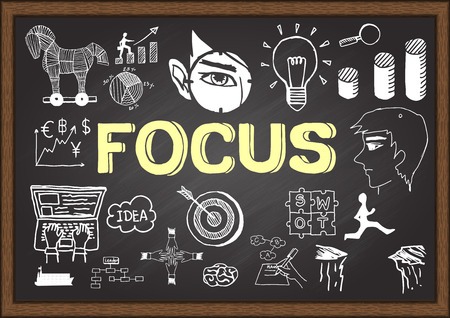
This is one of the benefits of meditation for students and those who perform creative work.
It takes a lot of focus to study difficult concepts or put together a meaningful professional result.
The distractions this world has to offer are many.
Your textbook or project has to compete with Facebook, Twitter, email, phone texts, social gaming, phone calls, console video games, random conversations, and plenty else.
Even with proactive interventions, every single possible distraction cannot be 100% eliminated.
Meditation also requires a certain amount of focus.
Whether it’s a mantra, a single point of candlelight, or your own breathing, practicing meditation requires each person to begin organizing their mind.
Thoughts get labeled. Emotions get filed.
In return, there are moments of clarity that can be experienced.
As you practice this focus in the early days of meditating, there will always be racing thoughts and other distractions that come your way.
Focus is a skill. It can be improved if it is practiced and meditation will help you do just that.
#7. You want to feel like yourself again
One of the unfortunate facts of life is that we get older every day.
We celebrate this fact once per year with cake, presents, and maybe a few balloons, but it isn’t always a happy celebration.
With meditation, however, it could be.
Researchers at UCLA have studied meditation and have come to the conclusion that it can preserve the amount of neurons that are present in the brain.
This means gray matter preservation, which can potentially slow down the mental aging process.
It’s not just the mind that benefits from meditation either.
Your genetic code may be able to stimulate telomerase activity so your risks of early death are lowered.
Nothing can reverse the aging process, but meditation can help you feel like yourself for longer periods of time.
It can help keep your mental wit sharp.
It may even help with memory recall while keeping your chromosomes young.
Those are some important physical benefits of meditation.
#8. You want a deeper spiritual experience or relationship
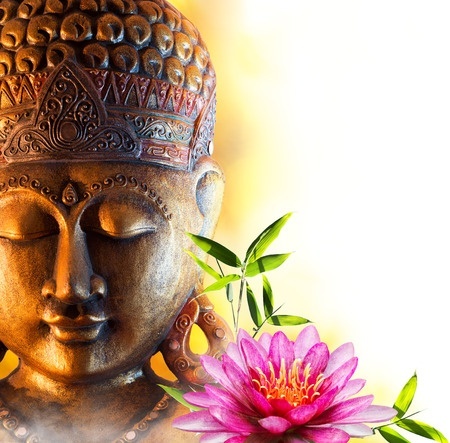
Did you know that there are 28 Bible verses about meditation?
Or that meditation can be an integral part of the Jewish faith?
Or that the Prophet Muhammad [pbuh] meditated 4 times per day and that the salat could be considered meditation as well?
Those are considered the world’s 3 major religions and meditation is arguably an integral component of each of them.
Now expand that idea into the hundreds of other religions, thought perspectives, and other forms of spirituality and the importance of meditation cannot be overstated.
The spiritual benefits of meditation are the same for each person, no matter which religion is followed or if there is a preference to not follow a specific religion at all.
Meditation brings people closer to their relationship with their deity or deities.
It allows us to rise above the frustrations of this world to focus on our higher senses.
Most importantly, it frees the mind from worldly desires so that higher desires can be sought.
This makes it easier to love, to serve, and to be present in each moment offered in life.
Prayer can very much be meditation.
Prayer and meditation can also be separate from one another.
It all depends on your personal preferences and individualized spirituality.
#9. You want to stay alert all day

We’ve talked about how meditation can help you sleep and this can give you more energy.
Yet there is a difference between being awake during the day and being alert.
In a study reported by Time magazine, researches compared how alert students were after completing a specific activity.
Some students were allowed to sleep. Some got to watch television. Another group was allowed to meditate.
At the end of the research, the students who meditated were 10% more alert than the other students who did not meditate.
This means you can use meditation as a quick pick-me-up during the day instead of sugar, coffee, or energy drinks.
Now some may say that you can also use meditation to help you fall asleep at night.
This may add to the struggles of meditating instead of helping.
The goal of meditation is to provide you with clarity and focus.
This naturally creates a heightened state of alertness and awareness.
Instead of sleep, meditation should be used to help you stay alert all day.
#10. You want to become more social

Meditation is often thought of as an individualized practice, but it doesn’t have to be.
Guided meditation can bring about all of these benefits.
For some people, seeking out social meditation may even be the best solution because it creates another layer of accountability to establishing this new habit.
There are many parents who stay at home all day and get very little adult interaction.
There are professionals who are either at work or at home and never get to meet anyone new.
By creating time for social meditation, you can meet new friends and experience the physical, mental, and spiritual benefits of meditation at the same time.
If you’re looking for a beneficial guided meditation experience, then it is important to be aware of what tends to distract your mind.
Many social meditation opportunities involve background music, repetitive mantras, and teaching opportunities.
If that will ruin your clarity, then guided meditation may not be right for you.
#11. You are tired of feeling sick

In a study reported by the National Institutes of Health, transcendental meditation practitioners show higher levels of white blood cells, with specificity to leukocytes and lymphocytes, when compared to non-meditation practitioners.
To gain this immune system benefit, the researchers discovered that at least 30 minutes of meditation per day would be needed.
Researchers believe that this creates a faster response to infections, inflammation, trauma, and even allergies when they occur in the body.
It also gives strength to your white blood cells so that they are at a lower risk of being overwhelmed or destroyed should an illness occur.
So if you’re feeling sick and it’s a feeling that won’t go away, the first stop should be to see your doctor to see what is going on.
As part of your treatment plan, ask about meditation and its physical benefits.
If you’re just dealing with allergies or chronic pain issues, consider meditation to give your immune system a boost.
Now if you are dealing with an immune system disease, such as rheumatoid arthritis, then meditating should only be done under a doctor’s direct supervision.
The last thing you need is to have an enhanced response when the response is already enhanced in an inappropriate way for your health.
#12. You want to be able to concentrate better
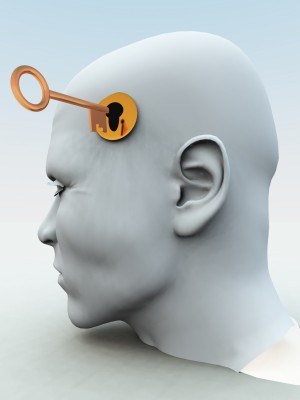
We’ve talked about focus. That means being able to stay engaged on something specific for an extended period of time.
Now let’s talk about concentration.
If focus lets you stay engaged, then concentration helps you retain what you’re absorbing through that engagement.
In many ways, focus and concentration are essentially the same, but you can pay attention to something without actually retaining the information that you’ve learned.
For example: if you are receiving information from a lecture, then you’re likely to retain 5-10% of the information passed along to you.
You can be focused on the speaker, but without concentration, you’ll retain less of the data you’re focused upon.
The same is true for small group practice sessions.
You can retain up to 90% of the information received when you’re able to practice a new skill being taught immediately in a small group setting that feels safe.
Concentrating on the key points during this time can help you be closer to that 90%.
Focusing on the presentation, but failing to concentrate on those key points, takes you further away from that 90%.
If you’re discovering that you can pay attention well and that your memory recall skills are good, but you’re struggling to use the information that has come your way, then this is one of the benefits of meditation you’ll want to focus upon.
This way you’ll be able to improve your skill base in any area because you’ll be able to use the information more effectively.
#13. You are ready to have your first child

In basic terms, if you’re trying to have a child, then conception occurs more frequently when you’re able to relax more.
This is where the ability for meditation to be able to control your stress levels can really pay off.
One of the most common reasons behind infertility for a couple is stress.
Not only can cortisol, the stress hormone, prevent an egg from being released, but it can also lower the sperm count.
With less chances of fertilization on every attempt, it can become virtually impossible to stay fertile.
Couples place a lot of self-imposed stress upon themselves when trying to have a child.
Every time a conception does not occur, the emotions of failure tend to dominate.
For those without a physical infertility issue that needs to be addressed, most couples discover that they can have a child the moment they stop stressing out about it.
Whether you’re trying on your own or with an infertility specialist, meditation can work as a distraction technique.
Instead of staying focused on an inability to have a child, you can provide your mind relief by focusing on something else.
And here’s a fun fact to consider: many of the breathing techniques that are taught to women for the childbirth process are just a variation of meditation breathing techniques.
#14. You’re tired of dealing with headaches

Some headaches are easy enough to explain.
Muscle tension, especially in the neck, back, and around the skull base, can lead to debilitating headaches.
Migraines that happen because of various triggers might also be part of your life.
Here’s some good news: meditation can help with the physical symptoms of a headache.
This includes the “halo effect” that some migraine sufferers encounter.
Certain meditation techniques allow the entire body to relax.
When the muscle tension is released, the migraine symptoms and the accompanying aura can be reduced.
Some people can even experience a complete headache removal through 30-45 minutes of meditation without medication.
Stress is also a trigger of headaches and migraines that meditation can help you manage.
Some people try to manage their migraines through counter-triggers, like taking a shower for the warm water or drinking caffeine to increase blood pressure.
Meditation can work with these counter-triggers to enhance the effects that are felt.
You can meditate in the shower. You can meditate in a bathtub. You can have an energy drink and then get into your meditation space.
Even if you need a dark room and a soft pillow for your head, you can still meditate to decrease the intensity of the headache.
Meditation may even reduce the frequency of headaches that are being experienced.
If you’re tired of dealing with headaches on a regular basis, then meditation is something that you’ll want to try regularly.
It really does work.
#15. You are tired of feeling afraid

Fear is something that is produced when logic meets anxiety.
Sometimes we are afraid for a good reason – like seeing a black widow spider on the wall next to us.
At other times, fear is something that is a result of our own concerns – like a fear of flying.
In a tube up in the sky, you have no control over what happens.
Meditation helps to bring that control back to you. It does this in large and small ways.
Sometimes the simple motion of bringing good posture back to your body can reduce the stimulation of your sympathetic nervous system, which can amplify the feelings of fear.
Muscle tension is reduced by this activity as well, which then calms the fight or flight response that is naturally built into your genome.
When your fears have you living inside, isolating from the outside world, then it’s time to try meditation.
You can address your anxieties and look for logic errors that could be inflaming the issue.
This process will help to decrease the pressure on your adrenal-cortical system, which over time will then be more resistive to bothersome situations so you don’t keep seeing the worst-case scenario.
Have You Started Meditating Yet?
Meditation can bring you many wonderful benefits that encompass the whole of the human experience.
Whether it’s simple stress management or a desire to experience more happiness and contentment, meditation is one of the few things in life we can control that addresses physical, mental, and spiritual needs simultaneously.
In just 21 days, you can start a new habit that includes meditation every day.
Research suggests that 30 minutes or more each day provides the most benefits, but any meditation time is better than none.
Build up to 30 minutes if you need to do so. Start with just 2-5 minutes per day if you’re struggling to include it with your schedule.
Do what it takes. Meditation makes a difference.
The best part about meditation is that it can be done anywhere.
Park your car and meditate for a few minutes.
Meditate during your morning shower.
Find a quiet spot at work and meditate during a break.
There are always options if we are willing to embrace this new habit and commit to making it become part of our regular routine.
You may also be interested in:
1. Can You Meditate with Your Eyes Open?
2. Can You Meditate Lying Down?
3. How Long Should You Meditate Each Day?

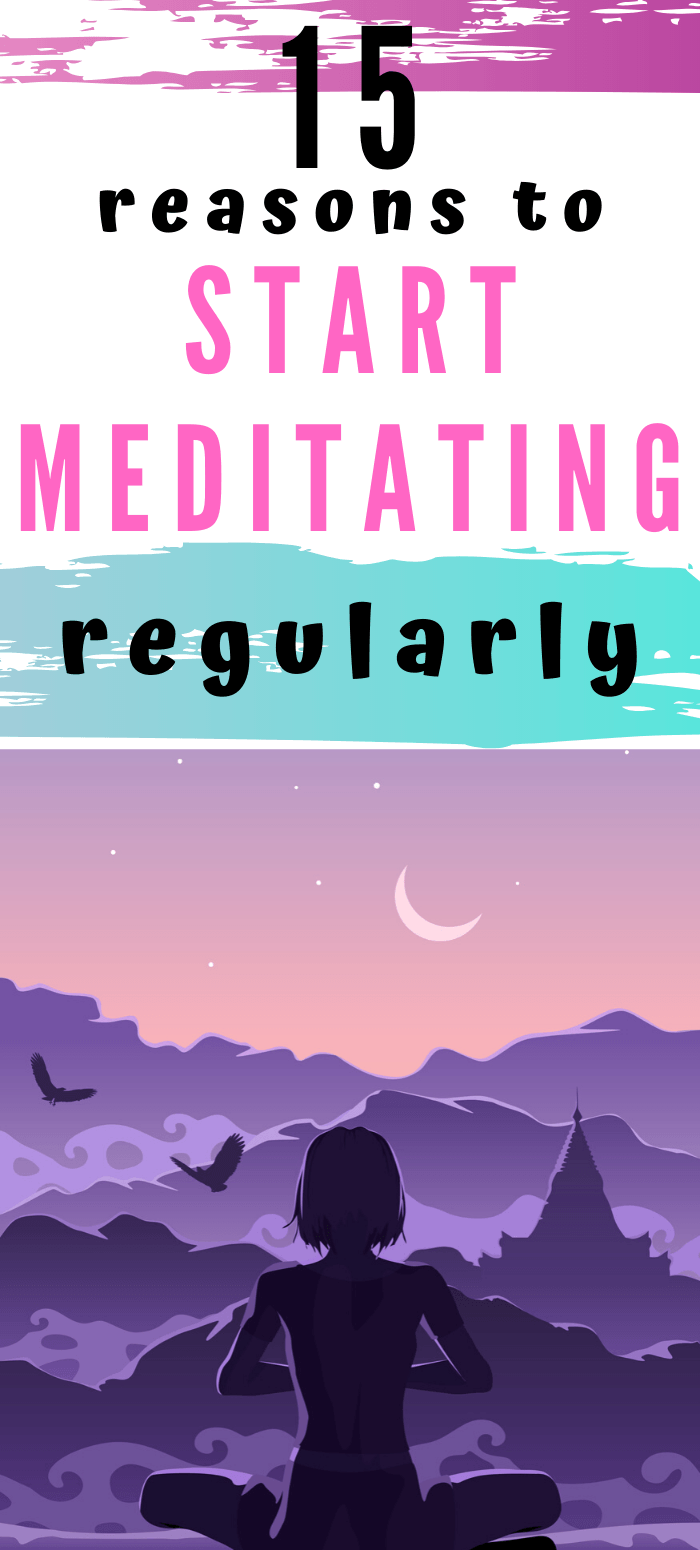
![Profound Meditation Program [Full Spectrum]](https://meditationbrainwaves.com/wp-content/uploads/2021/08/pmp-3-image-23.08.2021.jpg)

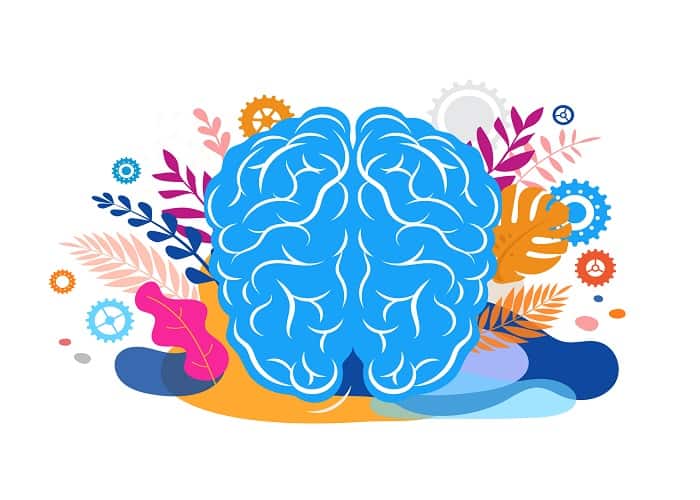


Hello,
My Name is Mike and I want to rhank you for your inforamtive article. Meditation is a good thing and it has many benefits as you say. For my exams last year I meditated almost every day to calm down. This year on vacation I meditated on the beach and in the woods to feel the moment.
I can reccomend Meditation to everybody.